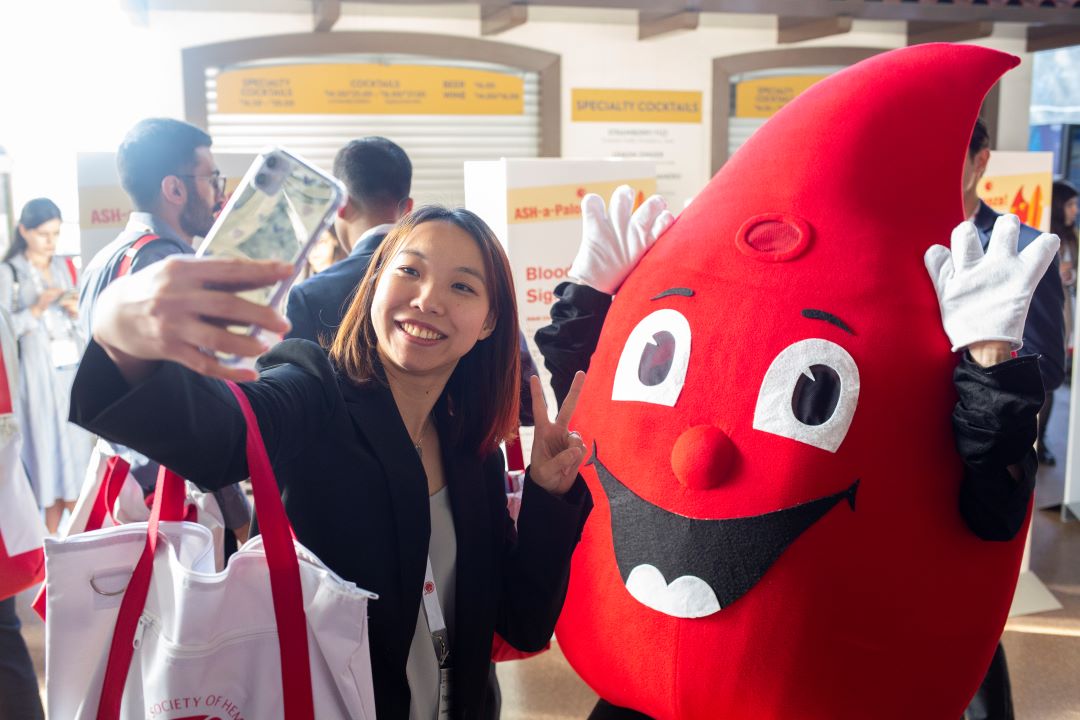Resources for ASH Ambassadors
ASH is proud of the new ambassadors who will serve as the face of the Society, helping to inspire and support the next generation of hematologists. The ASH Ambassador program supports recruitment and retention of trainees to hematology and to the Society by fostering mentor relationships and increasing awareness of ASH’s career development and training programs.
The following reference materials are intended to serve as resources for ASH Ambassadors. These materials will be updated and augmented periodically.
Recommendations for additional resources can be submitted to [email protected].
Student Interest Group (SIG) Framework
A central role of an ASH Ambassador is to establish and lead Student Interest Groups (SIGs) at their medical school campus. These SIGs will serve as hubs for learning, networking, and collaboration for medical students and will be key to guiding the next generation of healthcare professionals toward rewarding careers in hematology.
To provide some framework for the ASH Ambassador leading the Hematology Student Interest Group (SIG), the ASH Ambassador will ideally incorporate three key aspects when hosting activities on- or off-campus throughout the year: Research aspects, social/professional aspects, and clinical aspects. Example activities for each of these categories include:
1. Research Aspects
Share active research opportunities at local or nearby institutions
Share information about ASH programs, such as available awards and grants, the sickle cell disease initiative, on-demand content, and potential collaboration with the PhD Group
Provide workshops on how to conduct research, submit articles, review local research opportunities, mentorship connections, and recurring journal clubs
2. Social/Professional Aspects
Create a sense of community by emphasizing how caring for hematology patients is a multi-disciplinary team effort and that patients are part of this team/community
Provide mentorship and role modeling to help cultivate empathy and humanity in medical students
Provide input and reflections on what it is like as a health care provider to break bad news, and recognizing and normalizing the emotional toll associated with taking care of patients with serious illnesses, and discussing ways to manage these emotions
Review the professional opportunities for SIGs members at ASH’s Annual Meeting and other related hematology professional conferences
Assist students with connecting with mentors through activities such as lunch-and-learn sessions
Help to coordinate volunteer opportunities such as volunteering with the Leukemia and Lymphoma Society’s Light the Night walk, and the American Red Cross’s blood drives on campus
3. Clinical Aspects
Augment their medical knowledge through activities such as reviewing CBC interpretation, reviewing blood cell morphology, and reviewing what is involved in cellular therapies such as stem cell transplants and CAR-T therapy
Engage the students in hands-on workshops such as peripheral smear evaluation, bone marrow biopsy technique, and interpreting relevant imaging studies (such as CT scans and PET scans)
Discuss global opportunities for hematologists through international guest speakers identified by ASH
Reference Materials

Trainee Resources
ASH Ambassadors can direct their Student Interest Groups (SIGs) to the curated list of resources found on the ASH Trainees page. These resources are designed to help medical students, residents, and fellows advance their careers in hematology. Speak to your SIGs today about taking advantage of the many opportunities that ASH offers to the next generation of hematologists!
Questions?
For more information about the ASH Ambassador program, please contact the ASH Training Department at [email protected].